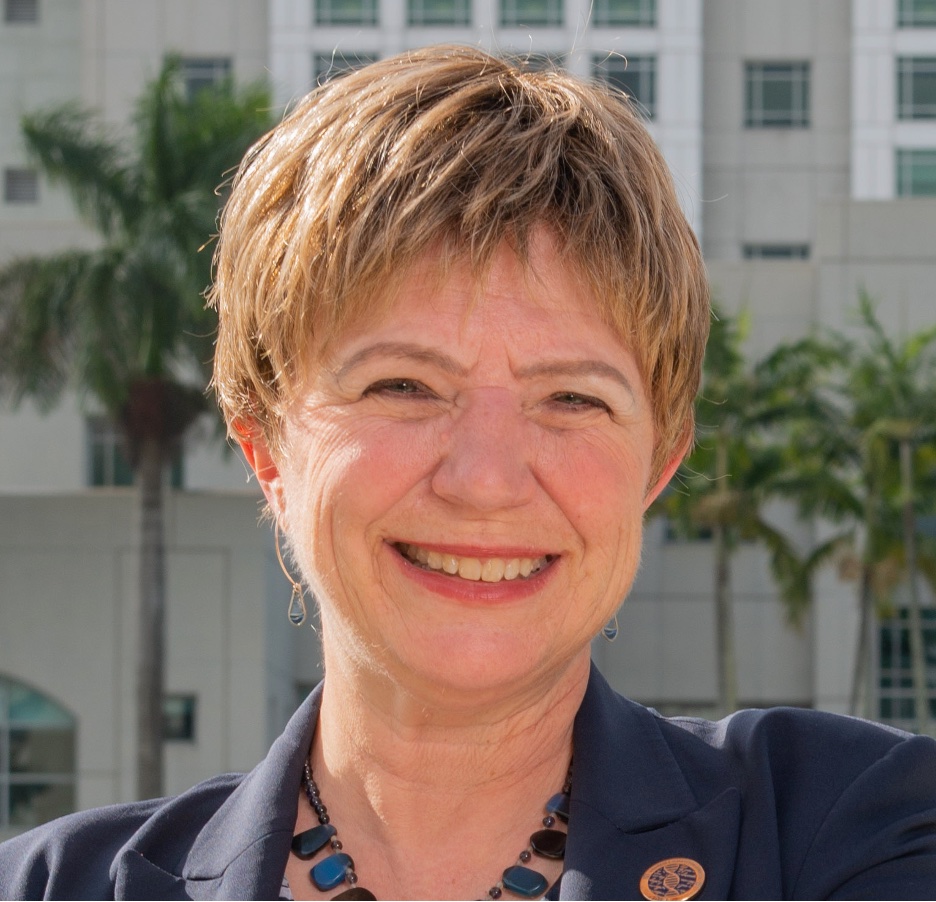Dr. Evelyn Gaiser, Distinguished University Professor of Biological Sciences, holds the George M. Barley, Jr., Eminent Scholars Chair at Florida International University (FIU). She is an aquatic ecologist who studies algal responses to climate and land-use change and has published over 130 peer-reviewed papers informing the protection of waterways. For 15 years, Gaiser led the Florida Coastal Everglades Long-Term Ecological Research program (FCE LTER), one of 27 such programs funded by the National Science Foundation, and now chairs the Executive Board of LTER Network. As former Executive Director of FIU's School of Environment, Arts & Society (2014-2018), Gaiser united faculty and students across disciplines to foster sustainability through inspirational teaching, creative works, and research. She advances science-based policy change through public-private partnerships and engagement of the fine arts. She is a member of the State of Florida Blue Green Algae Task Force and the Academy of Science, Engineering, and Medicine of Florida. She received her B.S. from Kent State University, M.S. from Iowa State University, and Ph.D. at University of Georgia.
Founded in 1980 by the National Science Foundation, LTER Network has over 2000 scientists from a broad range of environmental and social science disciplines who conduct long- term research to understand how ecological systems function over decades. LTER investigators distributed across 27 sites that span forest, desert, grassland, agricultural, urban, coastal, marine, and polar ecosystems have developed and tested fundamental ecological theory, established seminal ecosystem experiments, advanced predictive modeling, developed best practices for ecological information management, and innovatively trained the next generation of ecological scientists. This presentation will provide an overview of current site science and synthesis studies and will discuss how sustained engagement of large teams of scientists from academia, governmental, and non-governmental sectors with resource managers, policymakers, educators, and public audiences can help guide decisions that benefit the environment and society. Partnerships with organizations like the National Area Association are critical to this effort by the Network to contribute more substantially to transformative solutions for a more sustainable and resilient future for the entire biosphere.

Support the people who manage our natural areas and protect biodiversity in perpetuity.